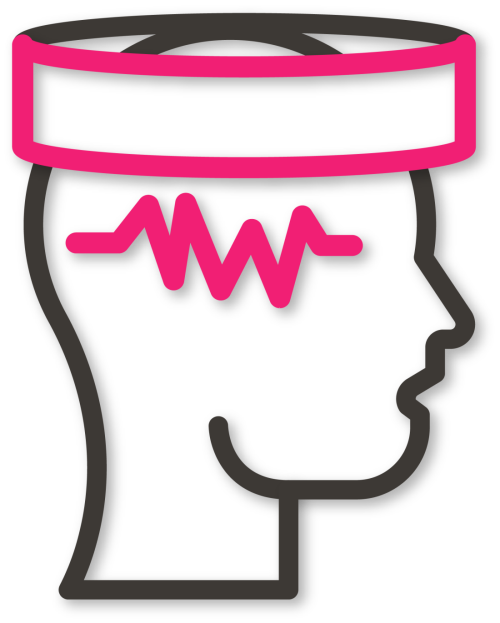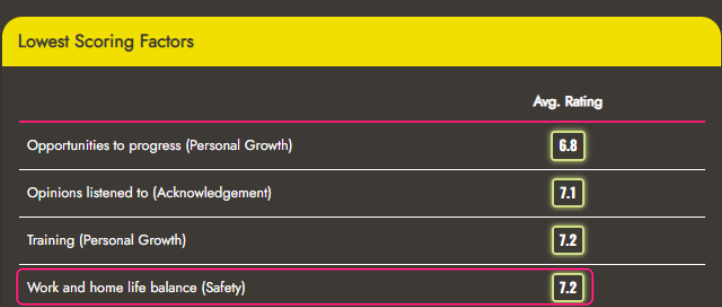
Neuroscience Surveys
We all want to be happy, and a significant part of our happiness is linked to our work. However, work can be a source of stress and anxiety, leading to unhappiness and burnout. So, how can we be happy at work? We outline the key drivers of employee happiness, based on neuroscience.
Psychological safety is the most logical place to start when we’re talking about employee happiness. Feeling safe and secure is essential for your people’s happiness and wellbeing.
Physical safety measures should be prioritised first and foremost to ensure that employees can work without worrying about accidents or accessibility. But we also need to consider emotional safety - such as freedom from bullying, prejudice or psychological abuse.
Trust is huge when it comes to safety. People need to feel trusted and be able to trust those they work with to be able to commit themselves emotionally to an organisation. Our senses are constantly surveying our environment and are very sensitive to factors such as tension, suppression and dishonesty - all of which inhibit human expression and contribution.
Across our database safety is one of the lowest scoring neuroscience themes. This is primarily driven by low scores for work-life balance, telling us that organisations need to focus on improving the work-life balance needs of their employees if they want to improve psychological safety.

Building positive relationships with your colleagues is the number one driver of employee happiness, according to our global data. It is yet another reminder that human beings are social animals, not robots.

Social connections can make a significant difference in our happiness at work - But relationships need to be authentic or they will break down at the first sign of trouble. In any relationship if you only ever discuss the good stuff and avoid the tough conversations, the relationship is likely to struggle once you hit choppy water!
Take time to engage with your colleagues, show an interest in their lives, and be willing to collaborate and support them when needed. It’s also important to remember everyone is different and if someone doesn't want to go to the big company party, it doesn’t mean they don’t care about relationships. It just means they want to interact in a different way. It is a leader's job to find out the best way to do this.
How you nurture positive relationships amongst your team will be key to creating conditions where your employees' underlying happiness can improve.
Feeling like you have control over your work and making decisions that impact your role can increase job satisfaction. If you feel micromanaged or have little input in the decision-making process it can feel demeaning and impact your self-worth.
But freedom at work is much more than this - It is about not being judged or experiencing prejudice because we are different from the perceived norm. It is about the ability to be authentic, which unveils our deepest talents and passions. It is about the opportunity to operate with some autonomy.
Freedom gives us space to explore and grow. To take ownership of our responsibilities, actions and consequences. It offers us the opportunity for deep personal meaning and learning. Most importantly, it enables us to offer our whole selves - rather than a diminished shadow shaped by judgement and prejudice.
Freedom scores in our platform are generally quite high. However, when analysing the insight by sectors it's clear that freedom is not universal. For example, the Public Service sector scored 6.8 which is significantly less than the average score for freedom at 7.9.

Acknowledgment is a feeling of emotional validation of who we are and what we are experiencing. It is one of the most important human needs and an area where we see organisations regularly falling short.
Receiving recognition and appreciation for your efforts can make a significant difference in how you feel about your work. When your hard work is acknowledged, it reinforces your value and contribution to the organisation. If the acknowledgement needs of employees are unfulfilled it can result in a lack of connection with the organisation and individuals can often feel they are not contributing and are unproductive.
Acknowledgement can be as simple as a thank you email from your manager or a shout out during a team meeting. But it’s important to remember that the way people want to be acknowledged varies from person to person. One of your team may really appreciate being acknowledged at the all company meeting BUT for another employee this type of acknowledgment may be their worst nightmare and cause for embarrassment.
In The Happiness Index dataset, acknowledgment is the area with the widest range of responses, highlighting that acknowledgement is incredibly important for our people. When looking at our complete dataset, we can see that acknowledgement is the joint lowest scoring theme (7.2). This tells us that the acknowledgement needs of employees are probably not being met and a further deep dive into why is important.

In short, to be happy at work you need to feel safe, build positive relationships with colleagues, have a sense of autonomy over your work and receive recognition for your efforts. Prioritising these aspects of your people’s work life can lead to a more fulfilling and enjoyable work environment, leading to a thriving culture and contributing to a happier life overall.

Linked to Happiness in our neuroscience methodology... learn more
The Happiness Index helps organisations measure the key employee engagement AND happiness drivers to power their people strategy.
Our unique platform offers the products, insights and tools to shine a light on your cultural health and empower management to drive thriving cultures.
Our neuroscience-based pre-built surveys measure the full employee experience - from onboarding to exit to empower and enable organisations to understand their people and create data-led action plans.
